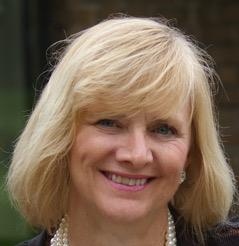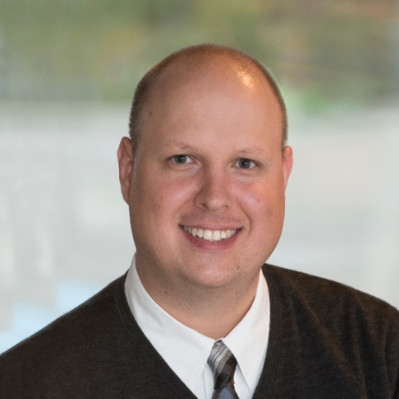An Interview with Grace Mater
An Interview with Grace Mater
By Rob Kirsic
March 2022

Throughout her years in public service, Grace Mater has been committed to collaborative approaches that enhance the lives of children and families in Hamilton. Grace’s career included working in Public Health as well as Human Services. Through her leadership of the Best Start Initiative, Hamilton created a community-based planning approach that was recognized as best practice provincially. Under her leadership Hamilton experienced modernization and expansion in child care that dramatically reduced wait times for children needing financial assistance for child care. Grace led the work on Human Services Integration and Community Hubs for the City of Hamilton. As well the creation of the Children and Youth Charter of Rights which was recognized by the United Nations.
Grace stepped into the Operations Chief role for the City of Hamilton’s pandemic response as well as the General Manager, Healthy and Safe Community Department role prior to her retirement.
Grace is also the recipient of the 2021 OMSSA Lifetime Achievement Award. OMSSA sat down with Grace to discuss human services, her career, and involvement with OMSSA.
This interview has been edited and condensed.
OMSSA: Child care is such a hot topic these days, and with so many provinces signing on to a national child care deal, based on your experience in this sector and with the City of Hamilton, what could child care in Ontario look like if/when the province signs an agreement?
 Grace Mater (GM): My hope is that the national child care deal will be the step forward before making it completely universal. It should be based on, or like, schools in that people understand what the value of it and its importance.
Grace Mater (GM): My hope is that the national child care deal will be the step forward before making it completely universal. It should be based on, or like, schools in that people understand what the value of it and its importance.
The other important thing that makes Ontario unique, compared to other provinces when they are looking at a national child care plan, is that we locally plan and deliver child care, and it is supported locally. We all deliver the exact same programs across the province. We can make it reflective of the needs and wants of the community that we serve.
We are also a province big on engagement. We are big on hearing from the people that are going to use our services, the people delivering the service and from each other when we talk about the role of OMSSA. It has the opportunity to access the different approaches and ways people come up with for service delivery to be shared with the membership so that you can bring that back to your community.
Families will finally feel the benefit of this program. Child care will not be a choice that you have to make based on your level of income. For years, we have talked about the importance of early learning and early child development, and that has been the cornerstone of the elevator speech about the program.
I think the talk and thinking has shifted. The one thing that the pandemic has provided for child care is the shift to the importance of it as an economic driver. Child care is a big sector, not only with the amount of people that are employed in it, but we are also a huge employer when you look at all the organizations that deliver children’s services and child care.
It keeps the economy going. Child care could not close in this province because of the pandemic. You could shut schools down, but not child care. And that issue was a switch for a lot of people. More work needs to be done and backed up with the right funding to support it.
OMSSA: Human services delivery between more than one level of government brings challenges and opportunities, especially as governments and priorities change over time. In your experience, what should human services staff know and think about when it comes to the relationship between the province and municipalities as it relates to the delivery of human services?
 GM: I am not sure if human services integration is as well understood at both the provincial and municipal levels. I think there are a lot of champions around the need for it, and I think it is going to take a bit of a shift in people to really understand the idea.
GM: I am not sure if human services integration is as well understood at both the provincial and municipal levels. I think there are a lot of champions around the need for it, and I think it is going to take a bit of a shift in people to really understand the idea.
Human service integration in some communities has been a way of life forever and I’m sure they shake their heads at some of the larger urban communities when we talk about it. These communities have done it out of a sense of functionality – they had to. You did not need a variety of staff delivering it because you have one person who is able to have all these conversations.
Over the years, I have listened to the Dan McCormick’s and Fern Dominelli’s because these guys have been doing it forever. They talk about how the province directs what they want delivered, they provide the admin funding in a lump sum, and their teams will look after it.
I think from the perspective of someone utilizing our services, they would welcome somebody that could take a more holistic approach for what their needs and wants are and to be proactive in offering services. I think we need to do a better job right at the outset when we are recruiting people and bringing them into this field by hiring the staff right into human services and not a specific role so we have a true understanding about what those services are.
The other aspect of human services is not just about the big three: housing, children’s services and Ontario Works, but where does public health come into the conversation? Until the provincial government sees these areas as one, and starts to fund municipalities to deliver them in the way that meets their community’s needs, then we are never going to get there. I think that until the province makes it easier for municipalities to deliver integrated services, it is always going to be a bit of an uphill struggle.
OMSSA: Speaking of OMSSA, you served on the board, on networks and committees, and served the Association in other capacities to collaborate with other levels of government. In your opinion, and based on your experience with OMSSA, what are some of the priorities the Association should focus on in the next few years?
 GM: I think the basic rule to remember is the role and primary responsibility of OMSSA is to the membership that pays its dues. I really believe the last few years OMSSA has stepped up its game. It has gone out and has recruited incredibly talented individuals.
GM: I think the basic rule to remember is the role and primary responsibility of OMSSA is to the membership that pays its dues. I really believe the last few years OMSSA has stepped up its game. It has gone out and has recruited incredibly talented individuals.
The advocacy role, and pulling together the different voices and perspectives, has been beneficial. A lot of times, we look longingly at Toronto with their level of resources, expertise and data and research, but some of us have that too but certainly not to their level. Seventy-five per cent of the group around the table does not have access to those kinds of resources.
The role OMSSA plays is to level the playing field. At the same time, some of the smaller areas are far better at being resourceful than some of their larger counterparts. I’ve learned so much from some of our smaller communities that are more nimble than we are. They are more adaptable and resourceful. So, it is a two-way street. When it comes to fellow members, we can help them with some of their challenges by sharing what we’ve been doing all along and sharing tools and resources.
The flip side is the municipal relationship with the province. Sometimes it does not feel like municipalities get the same treatment as other community partners. We are a level of government, so we have to make sure that when programs are delivered or transformed that it is not overkill. It is not a decision made one day that we are embarking on a new initiative.
There is definitely a fine balance in managing this, but I can appreciate from OMSSA’s perspective that it is a complex challenge.
OMSSA: Looking back on your career to date, are there one or two achievements that stand out to you? What are they and what makes them stand out to you?
GM: I have been incredibly fortunate in my career. When I look at the younger generations of people coming into the workforce, you sometimes feel like a dinosaur in that I have worked at the municipality for 36 years. When you think about the demographics now and career progression that is possible, people will have a variety of jobs in their lives.
I think most people believe that working with municipalities means you will be in the same spot forever. If that is what you want to do, you can do that. But you can also move around and have the different opportunities and experiences, you just need to be able to embrace it.
I think the thing I am most proud of is that while I’ve worked here for 36 years, I have held a variety of positions. I’ve worked in public health, Ontario Works as well as children’s services. I’ve had increasing levels of responsibility and autonomy throughout my career. It is amazing that you can have such diversity in a municipal career through the things you can do and the experiences you can have.
I feel like I embraced the opportunities that were presented to me. You can have a lot of different experiences and influences along the way. So, I would suggest to those just starting to put yourself out there. It is amazing the kinds of things you can do along the way that will enhance your experiences through your work life.
OMSSA: Is there anything else you would like to share with our members that I did not ask about?
GM: I really believe getting involved with OMSSA was a great opportunity. I had not really thought about it until later in my career. I was a member for a long time, but it is a great way to learn some different things, understand different perspectives, and open your way of thinking and approaching things.
That is one piece of advice I would give to anybody if you are getting into a human services career – look for the opportunities where you can expand your development. It’s a great way of influencing others too. You can get your voice out there and it is amazing that you are able to influence things along the way. So, instead of sitting in the cheap seats, get involved!
OMSSA: Thank you, Grace.
About the Author
 Rob Kirsic is the Communications and Member Engagement Manager with OMSSA. Rob started with OMSSA in 2021 and has over 13 years of communications and public relations experience in the private, public, and not-for-profit sectors.
Rob Kirsic is the Communications and Member Engagement Manager with OMSSA. Rob started with OMSSA in 2021 and has over 13 years of communications and public relations experience in the private, public, and not-for-profit sectors.